Understanding the Construction Process
We’re committed to delivering seamless fiber network expansions with a focus on:
- Expertise: Professional and experienced crews ensuring top-tier execution.
- Efficiency: Minimizing disruption through meticulous planning and execution.
- Innovation: Utilizing the latest technology in boring and specialized equipment.
- Accuracy: Employing precise measurements to safeguard existing utilities.
- Collaboration: Close coordination with end-user customers for on-property extensions.
- Quality: Timely restoration to a "better than new" standard.
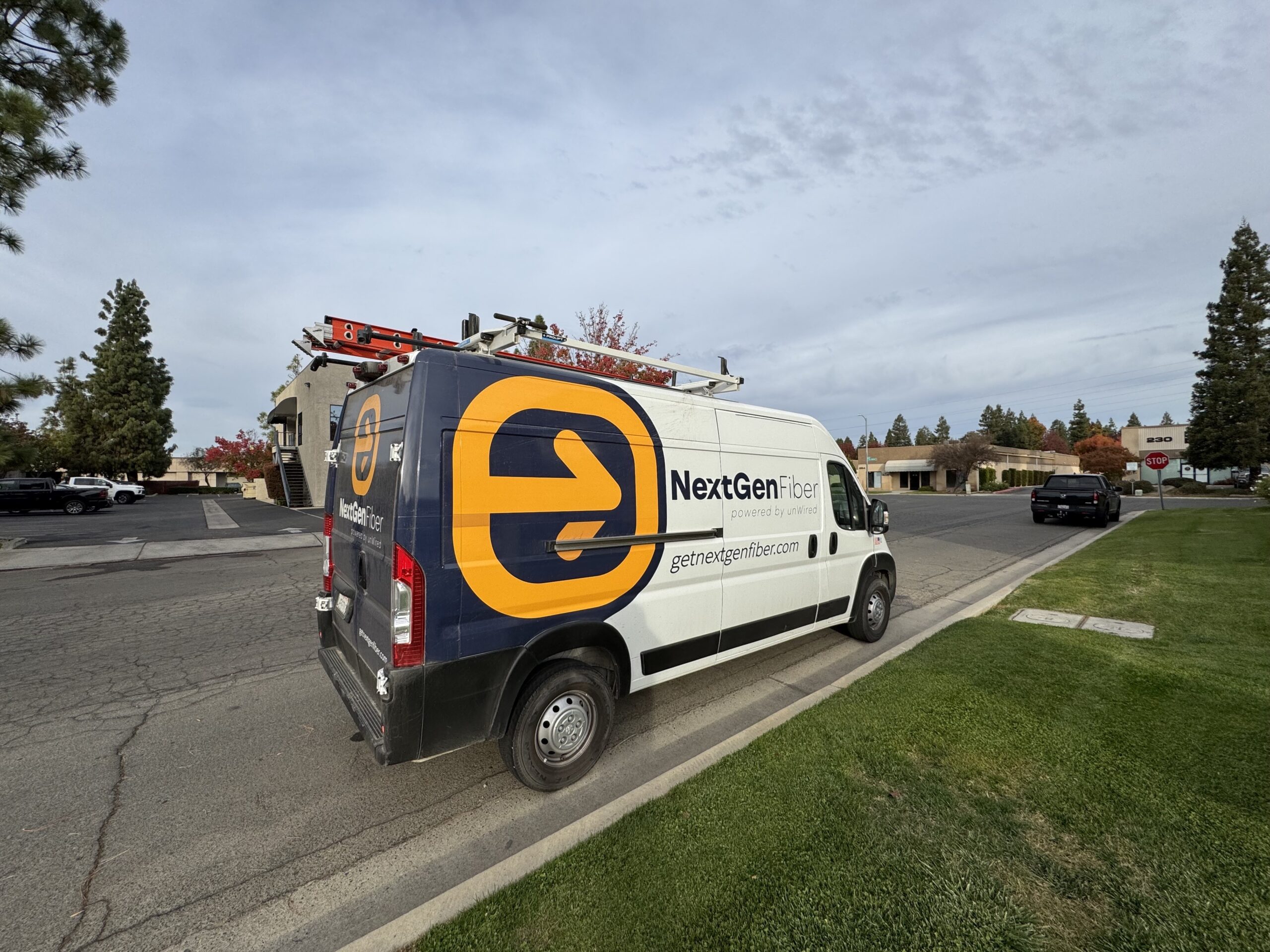
1.
Dig Process & Utility Marking
Initial Survey – Our engineers assess the planned route, noting potential obstacles, and submit a request to USA Dig.
Permit Submission – Required permits are obtained from city and county authorities.
Utility Locates – Utility companies mark their existing infrastructure using temporary paint or flags to indicate underground pipes, power lines, and other utilities.
Preliminary Site Assessment – Our team reviews all marked utilities and plans the safest approach before moving forward.
2.
Potholing & Verification
Core Drilling – A specialized drill creates a small core hole in asphalt or concrete.
Hydro Excavation – A high-pressure water system safely removes soil, allowing us to confirm the exact location and depth of underground utilities without damaging them.
Utility Depth & Position Verification – This step ensures there are no unexpected conflicts before proceeding with the bore.
Temporary Covering – A metal “top hat” cover is placed over the pothole until restoration takes place.
3.
Bore Profile & Installation
Bore Profile Creation – Engineers generate a bore profile, mapping out the precise underground path to be followed by the drilling equipment.
Bore & Drilling Methods:
Horizontal Directional Drilling (HDD): A steerable drill bit creates an underground tunnel, minimizing surface disruption.
Missile Boring: A compact method used for short crossings beneath driveways and roads.
Trenching: Where conditions allow, an open trench is used to install fiber conduit efficiently.
Conduit Installation – Once the bore or trench is completed, fiber conduits are placed underground to house the fiber optic cables.
Backfilling & Restoration – Any disturbed areas are restored to their original condition using fresh asphalt, concrete, or landscape repair.
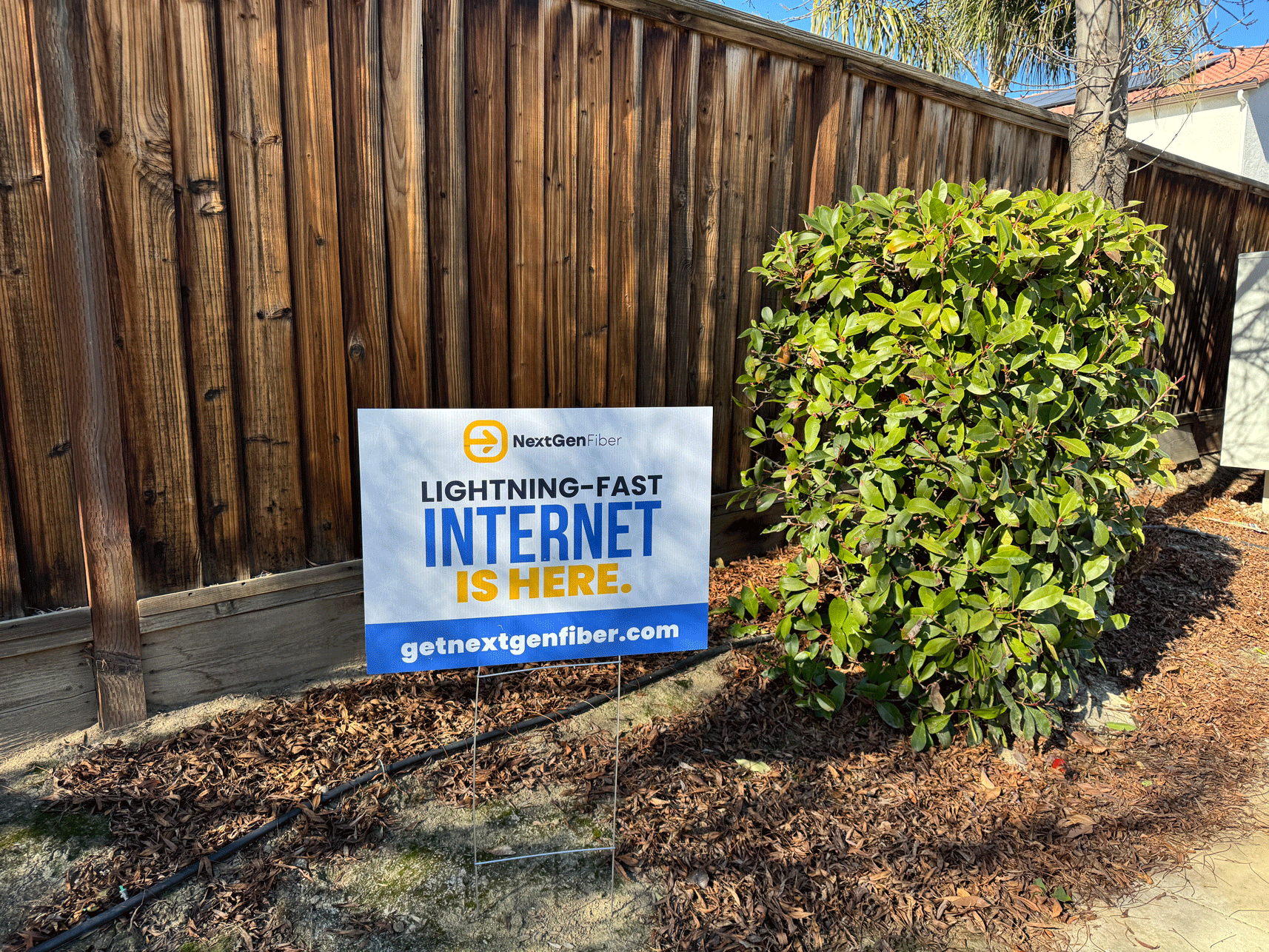
as a Resident
Temporary Markings & Signs – Expect to see painted utility marks and small flags in your area.
Minimal Street Impact – We use advanced drilling techniques to avoid major road and sidewalk disruptions.
Construction Timeline – Work in each area typically lasts 2-4 weeks in total, depending on the complexity and conditions.
Restoration Process – Where conditions allow, an open trench is used to install fiber conduit efficiently.
Conduit Installation – Asphalt, concrete, and landscape restoration follow shortly after fiber installation is complete.
See below for photos
of typical installation set-up:
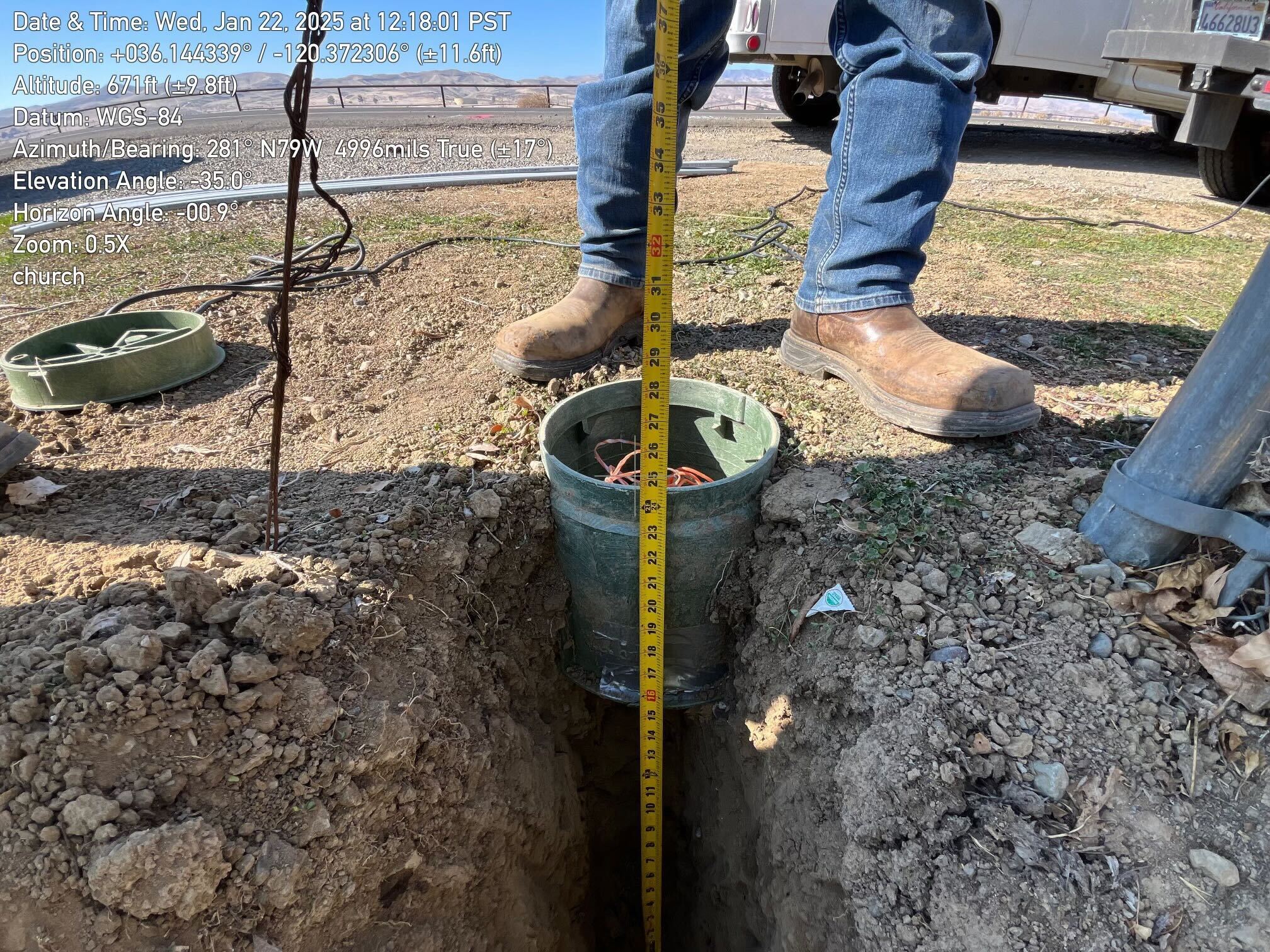
Handhole Installation with Depth Verification
This “flowerpot” or handhole installation highlights our depth verification process, ensuring proper placement and secure housing for fiber connections. Our meticulous approach guarantees long-term reliability.
Conduit Installation for Customer Fiber Drop
This image highlights the installation of conduit for a customer drop, ensuring secure and direct fiber connectivity from the network backbone to the end-user’s location.
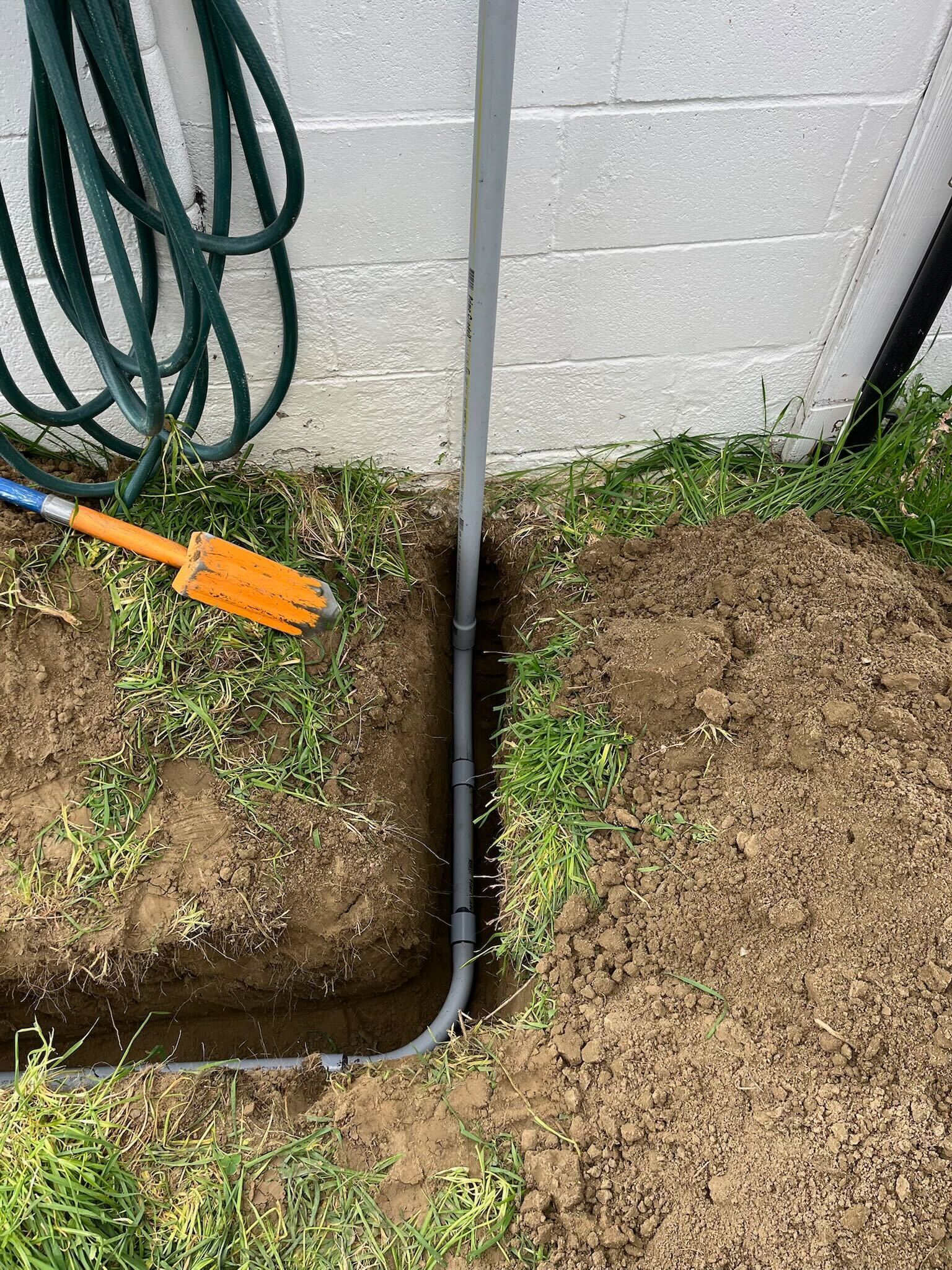

Concrete Saw Cutting for Precise Installation
A key step in our fiber deployment, this image shows precise saw-cutting of concrete to create a controlled path for conduit installation, ensuring a clean and professional restoration process.
Seamless Fiber Installation and Asphalt Restoration
A before-and-after view of conduit and fiber installation beneath existing asphalt, demonstrating our commitment to full restoration. The final result is a smooth, newly paved surface, ensuring minimal visual impact on roadways.
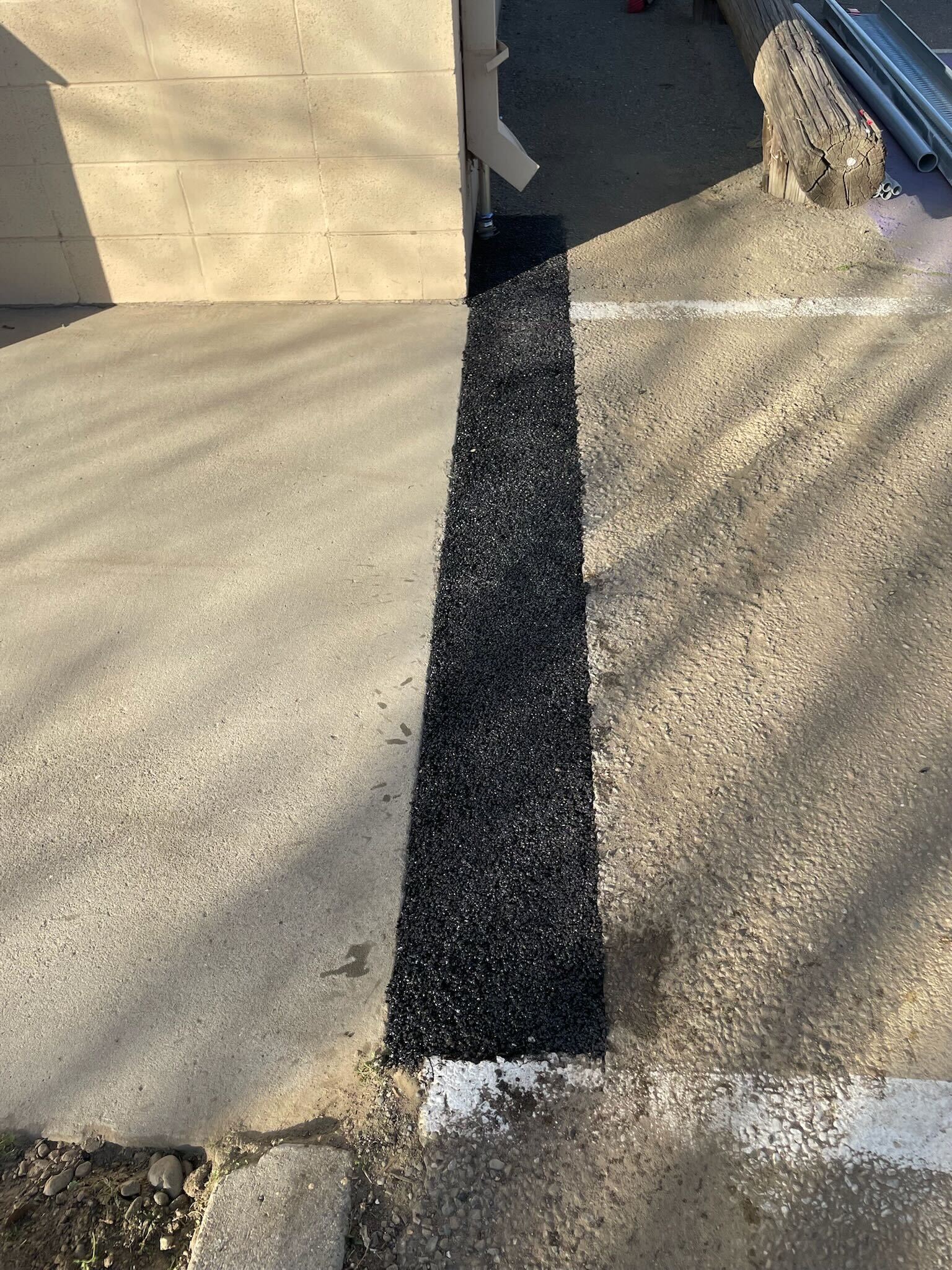
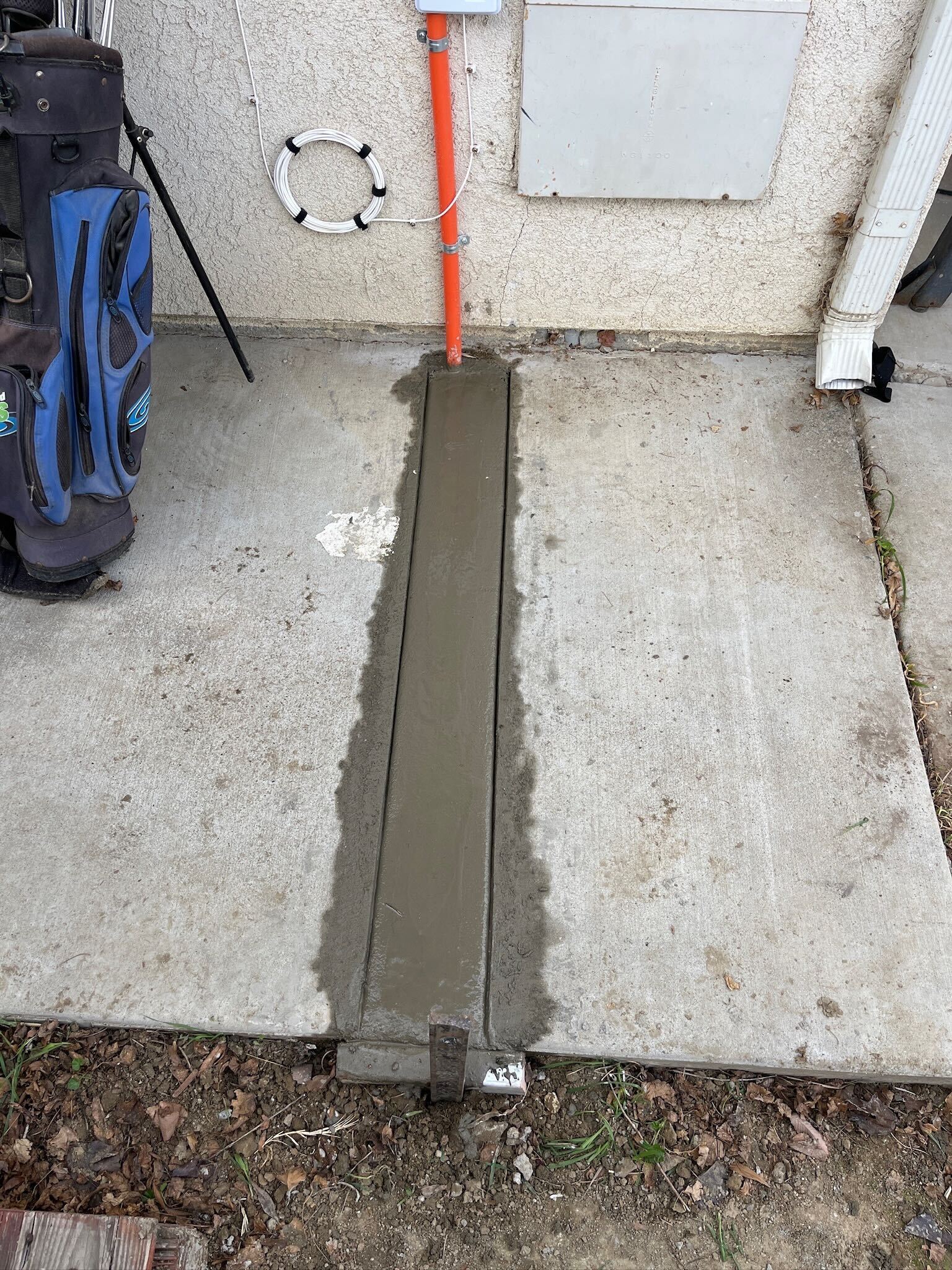
Concrete Repair After Fiber Installation
Our expert restoration process is on full display, showing a fully repaired concrete surface post-fiber drop and NID installation. Quality construction ensures long-term durability.
If you have any other questions regarding your installation, please contact the Scheduling Department at (559) 261-4444 option 5.

